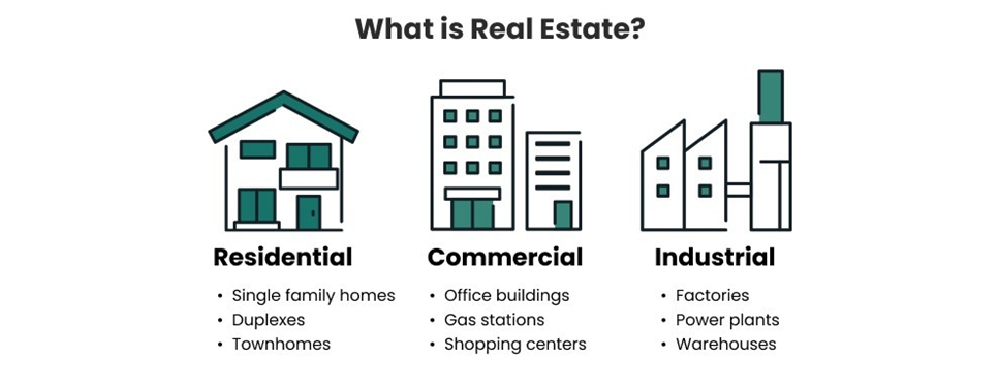The large bulk of flats offered in England and Wales are leasehold. Unlike a freehold house that rests on its own plot of land a flat is only a part of a structure which contains other dwellings. An individual resident can not own the freehold because the arrive at which the structure is built is shown other occupiers. Consequently the developer of the structure typically keeps the freehold and offers long-lasting leases to specific flat owners or 'leaseholders'.

In leasehold obstructs there will always be a freeholder or property manager and even if a flat is advertised as freehold it simply suggests its owner has a share of a freehold, which would be held by a resident freehold business. There are very couple of flats that are commonhold, which is a fairly recent kind of tenure where the flat-owners also own the communal locations and there is no landlord/flat-owner relationship. Owners of commonhold flats have no rights or defense under landlord and renter legislation and a prospective purchaser need to seek legal guidance before buying.

What is a lease?
A lease, which is a lawfully binding composed agreement, transfers ownership of a flat for a concurred set period of time called the lease 'term'. It specifies the occupier's responsibilities such as the payment of service charges and ground rent and the centers offered such as parking and the access to and pleasure of common locations, such as gardens or locals' lounge.
There is no standard type of lease for existing or newly developed residential or commercial properties despite the truth that a lot of leases will include many comparable terms. Residential leases within the same residential or commercial property will usually be considerably the exact same but might differ in some aspects such as the proportion of the service charge payable.
The regards to the lease
In most cases it will be difficult to change the lease terms and for that reason prospective purchasers of leasehold residential or commercial property ought to look for specialist guidance at an early stage in the purchasing process to ensure they totally understand the commitments and costs involved.
The Leaseholder Association (LA) advises any prospective buyer of leasehold residential or commercial property to obtain a copy of the lease at an early phase. Sometimes a Leaseholders' Handbook will be offered by the seller however this will just consist of a summary of the primary lease terms. This is no alternative to the full lease, which will require completely analyzing by a lawyer or expert adviser to see if all of its terms will be acceptable to the potential purchaser.
When a leasehold residential or commercial property is offered or moved, all of the rights and obligations of the lease will pass to the buyer, consisting of any future payments of ground lease and service charges. It will either be impossible or very tough to change the terms of the lease and therefore the prospective buyer need to understand they would be lawfully bound by its terms. (Please see the LA Information Sheet 110 Lease Variations)
The lease need to set out in some information the contractual rights and commitments of the leaseholder and the freeholder. Sometimes there may be a 3rd party to the lease such as a management company and if so the lease must likewise supply a summary of their duties. Typically the freeholder will have the contractual responsibility for the management and maintenance of the structure, outside and common parts of the residential or commercial property, which may include any gardens or grounds. Many freeholders will designate managers to carry out the above in addition to other tasks such as setting and gathering service fee and producing accounts. The leaseholder ought to keep in mind that they will be liable for all of the expenses of the services being supplied.
The lease will typically set out some conditions, called covenants, relating to not only the use of the common areas but also the use and profession of the flat itself, which might require to be considered ahead of time. A purchaser of a leasehold flat will often be needed to get in into a brand-new deed of covenant which offers the landlord the right to take enforcement action if the flat-owner stops working to comply with the agreed conditions.
What are service charges?
Flat owners are generally needed to pay a contribution towards the maintenance of the whole building and the typical parts. This is called a service charge. The lease needs to specify the percentage of service charges payable, which might be equal with all other occupiers or individually determined to reflect the size of the flat and the services delighted in. If the lease makes provision for a parking space this might incur an added fee.
A prospective buyer ought to obtain information of the level of charges for the residential or commercial property they are believing of buying at an early stage and request copies of the represent the previous 2 to 3 years. They should likewise enquire whether there are likely to be significant increases. The amount of service charges will vary from year to year in relation to the expenses of the upkeep of the building, which will inevitably increase. The potential purchaser must understand that these boosts might typically be greater than the rate of inflation. (Please see the LA Information Sheet 103 Service Fee).
If I am buying my flat why do I have a landlord?
The freeholder is likewise known as the property owner due to the fact that he owns the land or ground on which the building is built. This entitles the freeholder to charge a yearly ground lease to all occupiers of the building and the lease ought to specify the percentage of lease payable, which my vary according to the size of the flat. The proprietor is accountable for the maintenance of the grounds and all the shared parts of the building such entryways, corridors, and any shared facilities such as a lounge, laundry room or visitor room. These are collectively known as the 'typical parts'.
When leasehold flats are marketed for sale the identity of the landlord is not always made clear. The property manager might be a private, a personal company, the local authority, a housing association or a Local Freehold Company (RFC). A possible buyer ought to think about the implications of each kind of property manager and would be recommended to discuss this with the solicitor or conveyancer. Where there is an RFC the buyer might be entitled to buy a share of the company that owns the freehold, which might bring additional responsibilities in addition to benefits. (Please see the LA info sheet 113 Enfranchisement).
What does the purchaser own?
Strictly speaking a buyer will never ever actually own a flat or apartment due to the fact that one can not individually own the traditionals of the building or the land the building sits on. What is acquired is the right to special belongings and profession of the residential or commercial property for the duration or regard to the lease, typically 99 years or more. A lease is just a contract with the freeholder of the building that gives the right of belongings. The longer the regard to the lease the greater is its market value. Unlike a rent-paying tenant, a leasehold owner maintains the right to sell the leasehold ownership and advantage from boosts in residential or commercial property prices.
Ownership will typically use to whatever within the limits of the flat but it would not typically consist of the external walls or windows. Typically the structure, the typical parts of the structure and the land the whole properties are positioned on would be owned by the freeholder. The freeholder would be accountable for the repair and maintenance of the parts of the building they retain. This responsibility is usually entrusted to an expert company called a handling agent, which may be an independent company or a subsidiary of the freeholder. The freeholder has no obligations to fund the upkeep of the structure or grounds. All these costs must usually be satisfied collectively by the leaseholders. The potential purchaser is encouraged to ask their solicitor to examine the lease to clarify the parts of the constructing the flat-owner will be accountable for and the most likely expenses involved.
What details is essential before purchasing?
The length of the unexpired regard to the lease is among the first considerations to a potential buyer as this will be among the primary elements impacting the cost spent for the residential or commercial property and the re-sale worth. Although the large majority of leaseholders will have a legal right to a lease extension at a later date this will include additional costs. Most of the times purchasers would be recommended to make sure there is over 80 years remaining on the lease. (Please see the LA Information Sheet 112 Lease Extensions). In the large majority of cases the loan provider will only give a mortgage if there is an appropriate period left to operate on the lease, generally at least 60 years.
A leaseholder's monetary responsibilities are set out in the lease, which will make flat-owners accountable for service charges and for the most part ground rent. If charges are not set out plainly and unambiguously in the lease they are not likely to be payable.
A purchaser needs to be pleased the structure has been properly maintained. It is crucial to see three years service charge accounts and observe the pattern in the amount owners have been needed to contribute. The accounts will reveal if there is a high level of service charge financial obligations, which might lead to other leaseholders paying additional sums to satisfy the cash shortfall.
Potential buyers should know whether there is a reserve fund and just how much there is in the fund. It will often be called a sinking fund, contingency fund or future maintenance fund and should be represented in money to meet future significant expenditure. This is a crucial factor to consider when buying a flat as the lack of a reserve fund or inadequate balance in the fund could imply that the purchaser will require to pay a considerable swelling sum when any major works are required. Diligent proprietors and managing agents will undertake a building study and prepare a cyclical upkeep strategy demonstrating how much cash will be needed to fund the future maintenance of the structure. Buyers ought to ask to see this plan and compare it with funds in the reserve fund.
The lease should specify whether a reserve fund is funded from leaseholders' yearly service charge contributions, a swelling sum at the time of re-sale or a combination of both. (Please see the LA Information Sheet 105 Reserve Funds).
A flat owner will end up being part of a community of owners and the lease will set out fundamental rules that are needed for everybody's well being. These commitments, which are often described as covenants, are enforceable in law and if they are constantly ignored in breach of the lease it might eventually result in the forfeit of the lease and foreclosure of the flat. Before purchasing a flat purchasers must check out the lease carefully and completely understand these obligations.
In a lot of cases the prospective buyer will need to get a mortgage and for that reason will require to take into account the level of service charges and lease that will be payable when considering the amount of mortgage repayments that might be manageable. A mortgage lender will typically need a valuation of the residential or commercial property to be performed however the potential buyer requires to be conscious that this is no alternative for an expert survey and acceptable enquiries about future scheduled upkeep.

Additional details will be gotten by the buyer's lawyer sending out to the seller's lawyer a basic questionnaire published by the Law Society, called LPE1.
A copy of this survey is available on the LA website or from the Law Society at www.lawsociety.org.uk. Buyers are encouraged to study this details thoroughly before completion.
What rights does the leaseholder have?
One of the most crucial is the right of peaceful pleasure of the flat for the term of the lease, which suggests the right to occupation with no excessive interference from the landlord or supervisor. This right must encompass the proprietor or manager attending to any neighbour or nuisance issues that may emerge. The leaseholder has the right to expect the proprietor to carry out all of the duties that are required by legislation and the terms of the lease such as the upkeep, caring for the financial resources of the block and ensuring no occupant triggers noise or nuisance that affects their neighbours. The leaseholder has a number of legal rights in relation to difficult service charges, acquiring financial details and taking control of responsibility for the management, which are covered in information in other LA details sheets.
What are the leaseholders' commitments?
As leases are in a different way worded leaseholders in one block might have different responsibilities to another block nearby. However, there will be some standard clauses that would be discovered in nearly all leases and these are some of the most commonly found responsibilities:
- To keep the within the flat in an affordable state of repair.
- To pay the service fee and ground lease in full without hold-up.
- To act in a method which will not create nuisance for neighbours.
- To request proprietor's approval, typically for structural alterations or subletting.

No Data Found!

